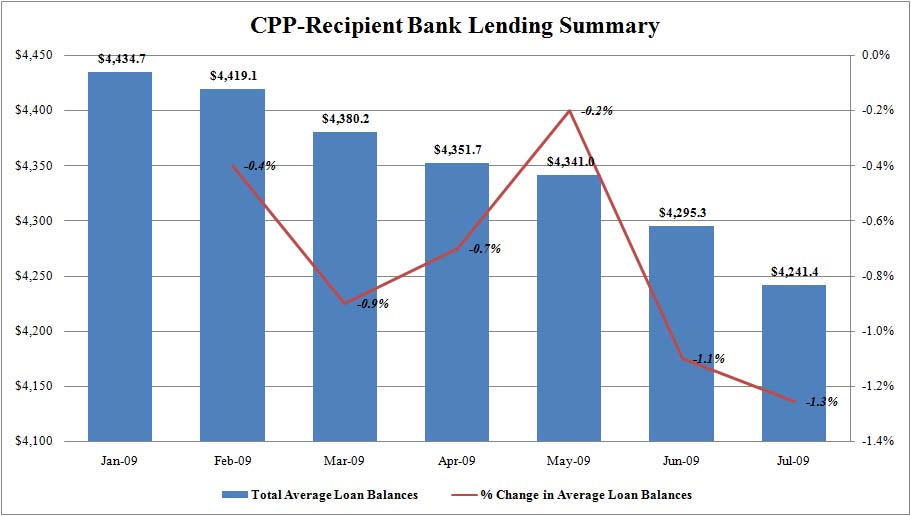I do not understand why politicians focus on job creation. Ok that’s not entirely true, I don’t understand why we let them get away with it. I mean, aren't business cycles more important after all?
Take, for example, Bill Clinton’s record in the 90’s. Dems tout this as though the dot-com boom wouldn’t have happened without him, yet I fail to see how Washington influenced a bunch of computer nerds out in Silicon Valley to create jobs. Conversely, George W has one of the worst records of job creation since the dawn of time (at least according to MSNBC), yet he presided over the dot-com bust, the fallout from Enron, 9-11, and the mortgage crisis. Sure he's partly culpable for that last point, but I strongly doubt any other politician would've applied the brakes on the housing bubble before it was too late.
And now we have continuing jobless claims remaining fairly constant at > 500k, with an administration claiming to have saved millions of jobs. It all seems like a bunch of nonsense doesn't it?
I say all of this to lead into today's news that the government is planning to
save billions of dollars take over the student loan industry (color coded to the appropriate talking points):
[Obama's] plan is to do away with a system in which the Federal Government subsidizes banks and other private finance companies like Sallie Mae to lend money to students. The Administration essentially wants to cut such companies out of the game and run the system itself. Democrats claim the move will save $87 billion over 10 years, which can be used for a laundry list of education priorities, including increasing the maximum amount of Pell Grants, expanding Perkins Loans and investing in community colleges and other programs.
Educational institutions currently have two ways to offer federal loans to students. In the Federal Family Education Loan (FFEL, pronounced "fell") program, the government pays subsidies to banks and lenders to dole out money to borrowers and reimburses companies up to 97% of the cost of any loan that is not paid back. The second way is the direct-loan program, created in 1993 as an alternate option, in which the government cuts out the middle man, lends money directly and gets all the profits.
"Ultimately, what they are trying to create here is the Post Office of student lending — you've got no choice," says Jack Remondi, vice chairman and CFO of Sallie Mae, the nation's largest lender, referring to Obama's Aug. 11 comments that questioned the efficiency of American letter carriers. "And this is the President's initiative on health care: if you create competition, that should drive down costs and save people money."
The loan industry estimates that up to 35,000 jobs might be lost by the transfer from FFEL to direct-loan. Members of Congress who represent states that employ a large portion of the industry workforce, like moderate Democratic Senator Ben Nelson of Nebraska, have opposed the measure for that reason. But the Department of Education (which would run the new and expanded program) maintains that... the total amount of jobs lost will actually be much less.
Approximately three-quarters of the FFEL loans in the 2008-09 academic year were already in the hands of the government.
Personally, I'd like to see both the costs associated with these two programs as well as their respective default rates before I make a final decision, but keeping wasteful programs afloat simply to appease angry Senators seems, how do I say this nicely, just a tad fiscally irresponsible.
Similarly, I was surprised to hear a few months ago that Senator John Cornyn voted
for the F-22 boondoggle that even the Defense Department deemed wasteful. That was until I received my monthly newsletter from Senator Cornyn explaining that cutting the program would lead to the loss of valuable jobs in Texas. I guess I should've known.
So I ask you, the humble blog reader, where do we draw the line between government spending that is wasteful and government spending that is essential for job growth? Because I'm confused.
---------------
UPDATE: Matt Yglesias
lays out the benefits of this move by the White House.
 Posts
Posts Twitter
Twitter Delicious
Delicious





 The stories are almost too perfect. Tales of ragged beginnings, blues and soul music that congers up images of hot and dry lounges filled with fedora-adorned patrons (before they became trendy) wearing suspenders and smoking their Lucky Strikes, and a lightening-fast acclaim and rise to stardom... but don't be fooled into thinking this happened during the Dust Bowl. This is happening now.
The stories are almost too perfect. Tales of ragged beginnings, blues and soul music that congers up images of hot and dry lounges filled with fedora-adorned patrons (before they became trendy) wearing suspenders and smoking their Lucky Strikes, and a lightening-fast acclaim and rise to stardom... but don't be fooled into thinking this happened during the Dust Bowl. This is happening now.